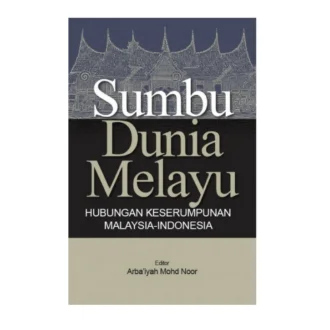To Nation by Revolution: Indonesia in the 20th Century derive from the reflections of a prominent historian on the nature of modern Indonesian history, over a 40-year time span. All the chapters save one have been revised and updated for this publication, with the injection of some additional optimism called for by post-1998 democracy. The exception is the earliest paper, from 1967, on the paroxysm of violence that punctuated Indonesia’s independent history from 1965-1966. This piece has been left unchanged as a document in the early quest for understanding of those horrific events. Political histories have already been written of Indonesia’s turbulent 20th century of national creation. This book is not a rival of such studies, and does not aim for comprehensiveness, although the first chapter provides an overview of the political process. Rather, it is a collection of studies of particular themes that have been critical for shaping identity and changing lives.
To Nation by Revolution: Indonesia in the 20th Century were originally written over several decades, and have been only slightly modified to recognise the new democratic conditions since 1998. Only Chapter 9 has been carefully left unchanged, as a part of the controversy that swirled around the appalling violence of 1965-1966 in Indonesia. For the most part, because each highlights a major issue Indonesia faced in that century, they have not been substantially outdated by the passage of time. Most of the chapters were placed in scattered collections that would escape the attention of Indonesianists (not to mention Indonesians), so that bringing them together appears justified.
A central thread running through many of the chapters is the importance of the manner in which Indonesia entered the modern community of nation-states, through political revolution. That revolution has often been denied or downplayed as failure because it did not have a communist outcome like those of China and Vietnam. The correct analogy is the French revolution rather than the Russian a profound breaking with the ancient régime without the guiding hand of a disciplined party intent on power. Like all those revolutions, it demanded a huge price in violence, human suffering, and the loss of cultural traditions; like them too, it delivered a glittering prize.
The prize turned out (as with all the revolutions in question) to be not the freedom and equality of which the revolutionaries dreamed, but a new unity under the umbrella of a state of a new kind, unimaginable under the former conditions. The Faustian bargain of this transaction is at the root of most of the chapters. Included too, however, are two papers which are not directly political, regarding the demise of two important Southeast Asian institutions at the hands of 20th-century modernity. First, slavery, or more broadly the strong vertical bonds between a man and his master, stood in the way of the state absolutism that marks modernity. Second, the end of the habit of betel-chewing, which marked every social occasion and ritual in the old order of things, marked the arrival of a global pattern of fashion and consumption, including narcotics.











Anonymous (store manager) –